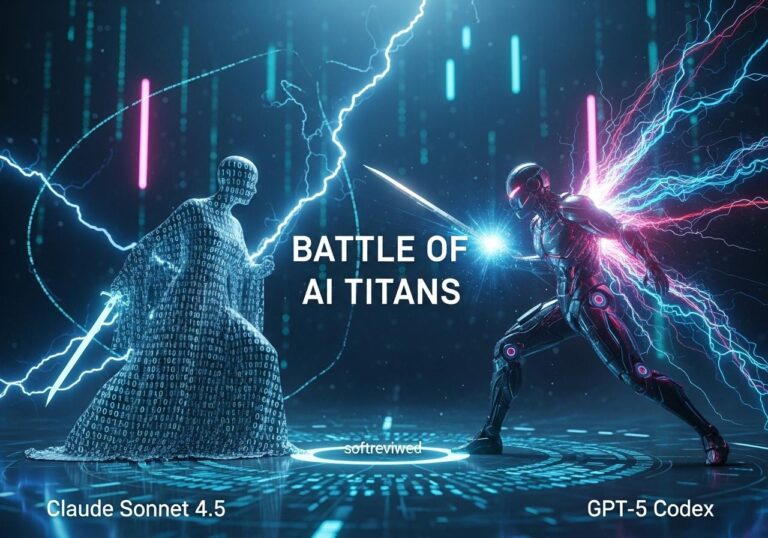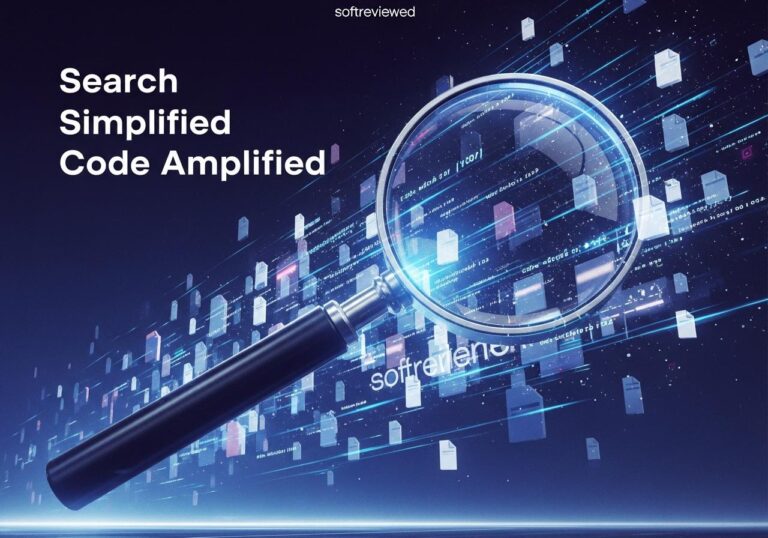Claude Sonnet 4.5 vs GPT-5 Codex: The AI Coding Battle
Comparing the leading AI coding models released in September 2025
🏆 Performance Leadership
Claude Sonnet 4.5 is positioned as the “best coding model in the world” with superior performance for building complex agents and computer use capabilities. The model demonstrates exceptional reasoning and problem-solving abilities for sophisticated programming tasks.
💰 Pricing Structure
GPT-5 Codex costs $1.25/$10 per million tokens while Claude Sonnet 4.5 costs $3/$15 per million tokens, making GPT-5 significantly more cost-effective for high-volume usage scenarios. This price difference may impact adoption decisions for budget-conscious developers.
📏 Context Window Advantage
Claude Sonnet 4.5 offers a massive 1000k token context window compared to GPT-5 Codex’s 400k tokens, providing 2.5x more context capacity for complex projects. This larger window enables processing of entire codebases and documentation simultaneously.
⚡ Speed and Reliability
Claude Sonnet 4.5 delivers faster processing speeds and improved reliability compared to previous models, with speed being characterized as “a dimension of intelligence.” These improvements translate to more efficient development workflows and reduced wait times.
💻 Specialized Coding Capabilities
Claude Sonnet 4.5 shows substantial gains in reasoning, math, and computer use tasks with nearly 20% improvement in computer use compared to previous versions. These enhancements make it particularly well-suited for complex software development projects requiring deep technical understanding.
🚀 Market Positioning
Both models released in September 2025, with Claude Sonnet 4.5 emerging as the preferred choice for complex agent development and long-context programming projects despite its higher cost. The market appears to be segmenting based on project complexity and budget considerations.
The Battle for AI Coding Supremacy: Why This Comparison Matters Right Now
The artificial intelligence coding space just witnessed its biggest shakeup in 2025. Anthropic's Claude Sonnet 4.5 and OpenAI's GPT-5 Codex are locked in an unprecedented battle for developer mindshare, each claiming to be the best coding model in the world. With Claude Sonnet 4.5 achieving top scores on SWE-bench Verified and demonstrating the ability to code autonomously for 30 hours straight, while GPT-5 Codex counters with high benchmark performance and 7-hour autonomous operation at significantly lower costs, developers face a critical decision that could shape their productivity for years to come.
This isn't just another model comparison—it's about choosing between two fundamentally different approaches to AI-assisted development. Claude Sonnet 4.5 emphasizes sustained, marathon-style coding sessions with superior benchmark performance, while GPT-5 Codex focuses on cost-effective, sprint-style development with tight IDE integration. Understanding these differences could be the key to unlocking unprecedented productivity gains in your development workflow.
Performance Benchmarks: The Numbers That Matter

Coding Capability Comparison
When it comes to raw coding performance, both models demonstrate impressive capabilities, but with distinct strengths. Claude Sonnet 4.5 leads the SWE-bench Verified benchmark, jumping even higher with parallel test-time compute enabled. This outperforms GPT-5 Codex's strong showing on the same benchmark, representing a significant edge for complex software engineering tasks.
The gap widens in terminal-based coding tasks. Claude Sonnet 4.5 achieves a remarkable success rate on Terminal-bench, substantially ahead of GPT-5 Codex. This benchmark tests the model's ability to navigate command-line interfaces and execute complex development tasks autonomously—crucial skills for modern workflows.
Mathematical and Reasoning Performance
In mathematical problem-solving, both models shine. Claude Sonnet 4.5 scored perfectly on the AIME high school math competition with Python tools, while GPT-5 Codex responded with near-perfect accuracy with and without tools. This suggests both possess the analytical capabilities needed for algorithm development and complex problem-solving.
For graduate-level reasoning measured by GPQA Diamond, GPT-5 Codex edges ahead slightly, while Claude Sonnet 4.5 dominates in financial analysis tasks using the Finance Agent benchmark. These domain-specific reasoning results highlight how each model excels in different analytical contexts.
Computer Use and Automation Capabilities
Claude Sonnet 4.5's standout feature is its computer use capability, setting a new high in the OSWorld benchmark. This tests how well AI can use computers: clicking elements, typing, navigating interfaces, and executing multi-step workflows across applications.
GPT-5 Codex, while not tested on OSWorld, demonstrates strong agentic capabilities through its autonomous operation features. The model can work independently for hours on complex tasks, handling everything from code generation to testing and debugging without human intervention.
Autonomous Operation: Marathon vs Sprint Approaches
Claude Sonnet 4.5's Marathon Endurance
The most remarkable advancement in Claude Sonnet 4.5 is its ability to maintain focus on complex tasks for over 30 hours continuously. In one internal test, it built a complete chat application from scratch, generating over 11,000 lines of code before completion. This represents a massive leap from its predecessor’s capabilities.
This extended endurance isn't just about time—it’s about maintaining context and code quality throughout the entire development cycle. The model handles architectural decisions, implements features, writes tests, debugs issues, and refactors code while keeping track of the overall project goals.
GPT-5 Codex's Efficient Sprint Model
GPT-5 Codex takes a different approach with its adaptive reasoning system. It automatically adjusts computational effort based on task complexity, using minimal resources for simple requests and dedicating extensive reasoning time to complex problems.
This sprint approach is highly effective for iterative development. The model quickly handles small fixes and refactoring tasks, then scales up for complex architectural changes. In refactoring benchmark tests, it showed substantial improvement over its predecessor, demonstrating the value of specialized optimization.
Pricing and Cost Analysis
Claude Sonnet 4.5 Pricing Structure
Claude Sonnet 4.5 maintains a premium pricing model, with charges per million input and output tokens. The base context window supports large prompts, with extended context options available at higher rates. For developers working with large codebases, this extended context capability can be invaluable despite the higher cost.
GPT-5 Codex Cost Advantages
GPT-5 Codex offers more attractive pricing, with lower costs per million tokens for both input and output. This represents a significant cost advantage for budget-conscious developers or high-volume use cases.
OpenAI also offers even more economical variants—Mini and Nano—providing flexibility for different performance needs and budget constraints while maintaining strong coding performance.
Real-World Integration and Platform Support
Claude Sonnet 4.5 Ecosystem
Claude Sonnet 4.5 integrates seamlessly with major enterprise platforms, including Amazon Bedrock, Google Cloud Vertex AI, and GitHub Copilot. It’s available through Claude.ai subscription plans, and the new Claude Agent SDK offers virtual machines for isolated execution environments, memory management for long-running tasks, and multi-agent coordination capabilities.
GPT-5 Codex Platform Integration
GPT-5 Codex is deeply integrated into the OpenAI Codex ecosystem, available via IDE extensions (VS Code, Cursor), GitHub integration, and the ChatGPT interface. Its real-time code suggestions, automated pull request reviews, and seamless environment switching create a smooth development experience.
Use Case Recommendations
✅ Choose Claude Sonnet 4.5 When You Need
- Industry-leading coding performance for complex tasks
- Extended autonomous operation for large projects
- Advanced computer use and system-level automation
- Superior domain-specific analytical performance
- Long-running refactoring and architectural projects
✅ Choose GPT-5 Codex When You Need
- Cost-effective development with lower token costs
- Rapid iteration and adaptive reasoning workflows
- Tight IDE integration for seamless coding experience
- Flexible performance variants for different needs
- Efficient sprint-style development for quick fixes
Safety and Reliability Considerations
Claude Sonnet 4.5 features improved alignment, reduced sycophancy, enhanced deception detection, and stronger prompt injection defense, making it suitable for regulated industries.
GPT-5 Codex includes robust safety measures—content filters, usage monitoring, and high scores on non-violent hate detection, personal data protection, and malware refusal tests—ensuring reliability in enterprise environments.
Choosing Your AI Coding Partner
Your choice depends on your workflow and budget. Individual developers and freelancers may prefer GPT-5 Codex’s cost savings and IDE integration, while teams handling large-scale, long-duration projects will benefit from Claude Sonnet 4.5’s marathon endurance and superior domain-specific performance. At the enterprise level, weigh performance against cost and integration needs to determine which AI coding partner best aligns with your strategic goals.







